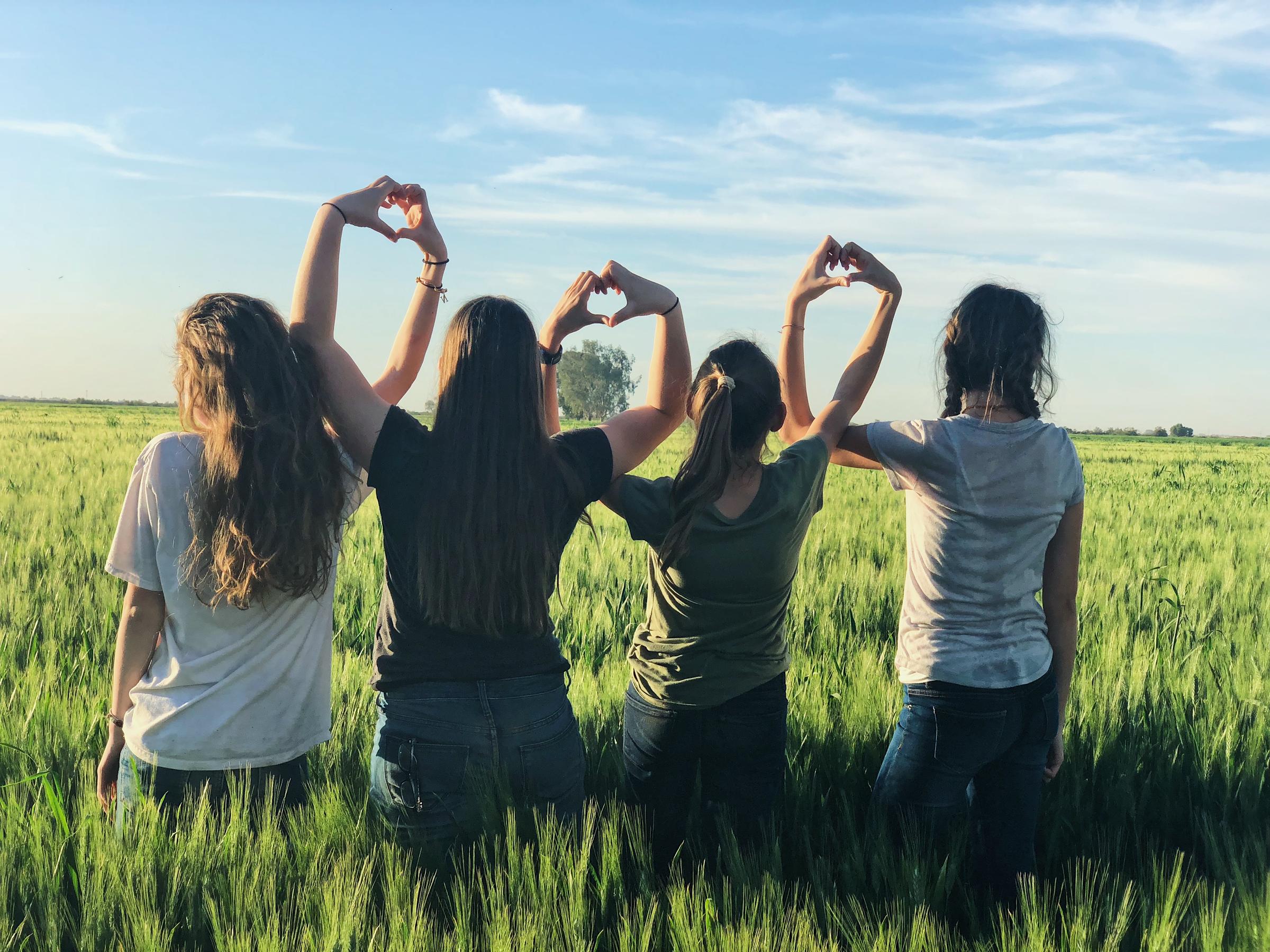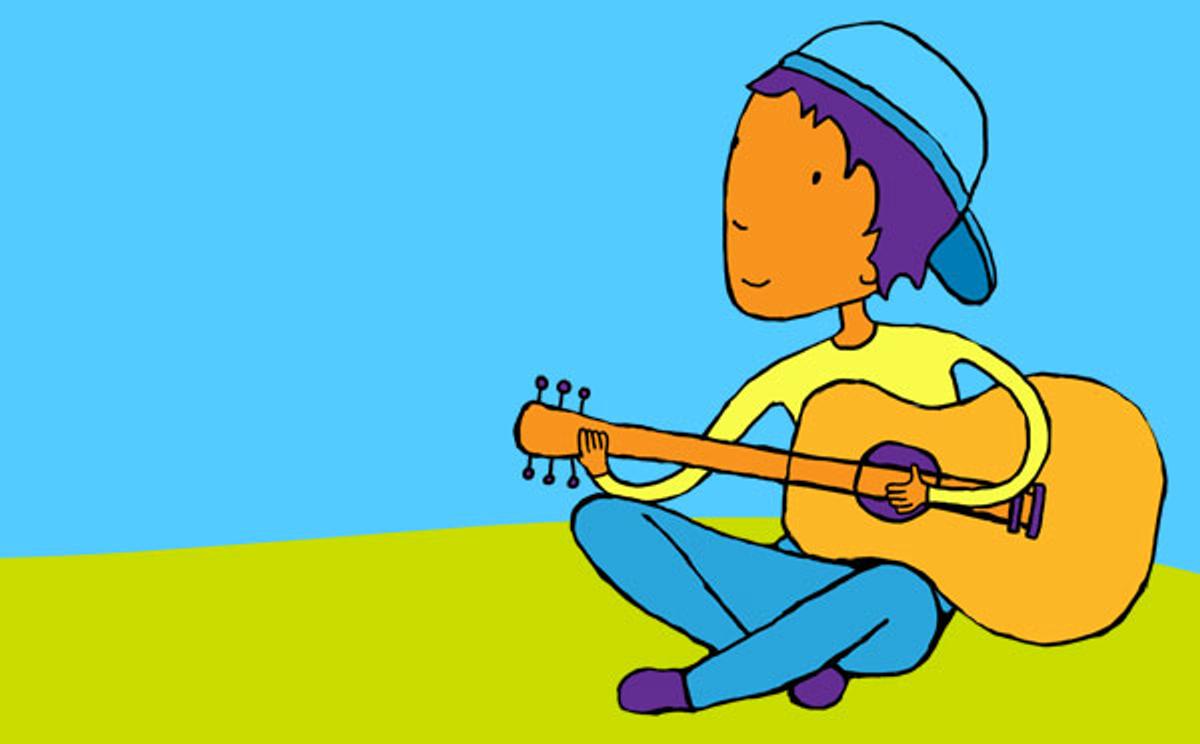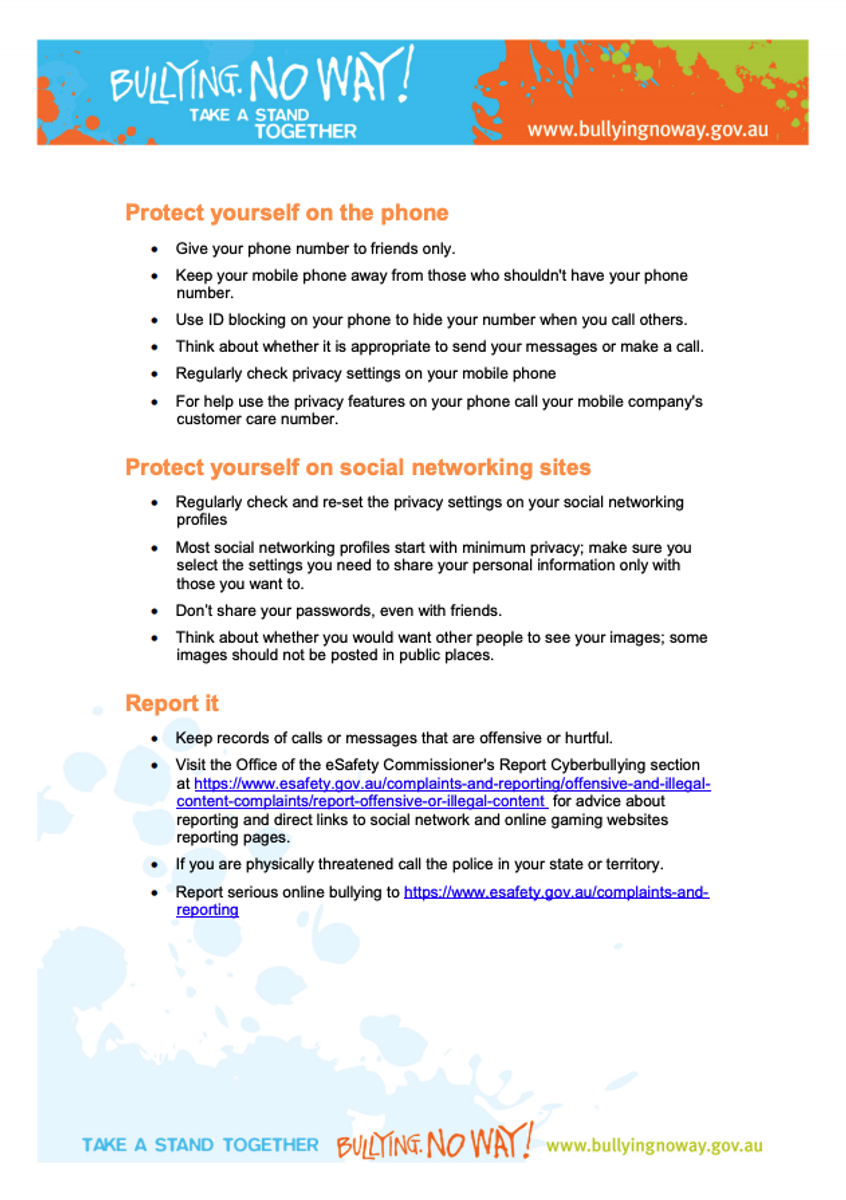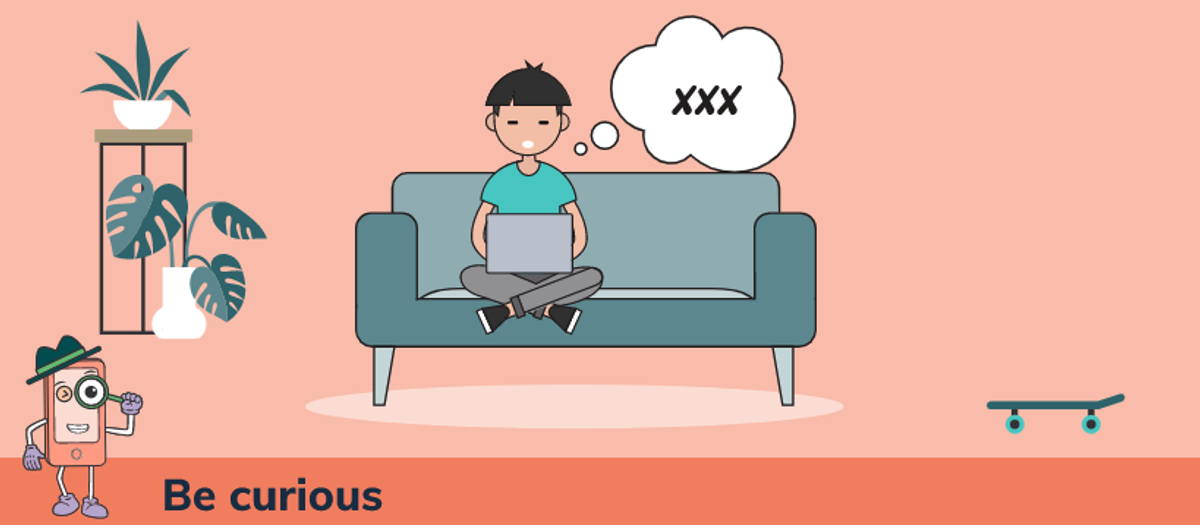Anti-bullying

Anti-Bullying
Bullying can be a real and serious issue in our schools. It can happen to anyone, anywhere, anytime, and can have devastating consequences.
We've collated some helpful topics around bullying from:
I know someone who's being bullied
If someone you know is being bullied they need your help. Others respect you if you stand up for someone who is being bullied.
How are they feeling?
If a person is being bullied, they are probably feeling some or all of these:
- sad
- frightened and lonely
- like running away
- not wanting to go to school.
How can you help?
Sometimes people don't say or do anything because they're afraid they will be bullied as well. But if you don't do anything the bullying will only continue.
Don't stand by and let bullying happen at your school! Talk to your teachers about doing something about bullying.
You may not be able to stop the bullying yourself but you can help.
What should you do?
As long as you feel safe when you see the bullying happening, you could:
- walk away and tell a teacher right away
- tell the person who is bullying that you will get a teacher if they don't stop
- encourage your friends to walk away or tell the person to stop
- help the person who is being bullied to get away and go somewhere safe.
If you don't think it's safe for you to stop the bullying there are other things you can do:
- help a friend or classmate who is being bullied
- tell them that bullying is not okay and they didn't do anything wrong
- ask them if they want help to get it stopped
- tell the teacher about it
- try to make sure your friend is not alone when they might get bullied
- ask the person who is being bullied to join your group or game
- walk away as people who bully like others to watch
- tell the person bullying you don't think what they do is cool or funny.
Cybersafety for students
Bullying. No Way! has produced a range of handy fact sheets for schools, families and the public. There are a complete collection of fact sheets found on various pages across the site.
Have you seen something online you didn’t like?
E-Safety has produced a range of resources for schools and families focussing on different topics.
There are a lot of really fun and useful things online, but there are also some things that are not so nice.
- Maybe you clicked on a link and saw something you didn’t like.
- Perhaps someone sent you an image or video that made you feel yuck.
- Or you saw something online that made you feel uncomfortable, unsafe or scared.
SWITCH IT OFF
Close the browser or turn off the screen.
This will help you to feel more comfortable.
You don’t have to look at anything that upsets you.
REMEMBER:
- It’s not your fault if you see something you don’t like.
- The important thing is to make sure you are OK.
TELL AN ADULT
It’s more important that you talk to your mum, dad, carer or an adult you trust.
A trusted adult can really help.
- They can make sure you are OK.
- You can talk to them about what you saw and how it made you feel.
- They can help you to report it — either to the game, app or website or to a teacher who can deal with it. See the eSafety Guide for reporting links.
- They can also help you to set up your device safety so you don’t see something like this again. See security and privacy for my device.




